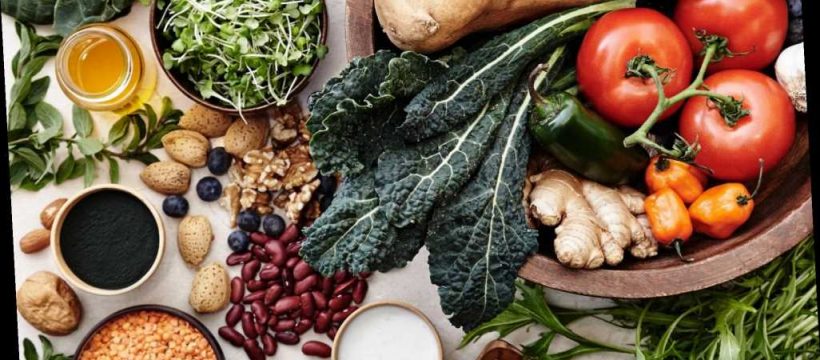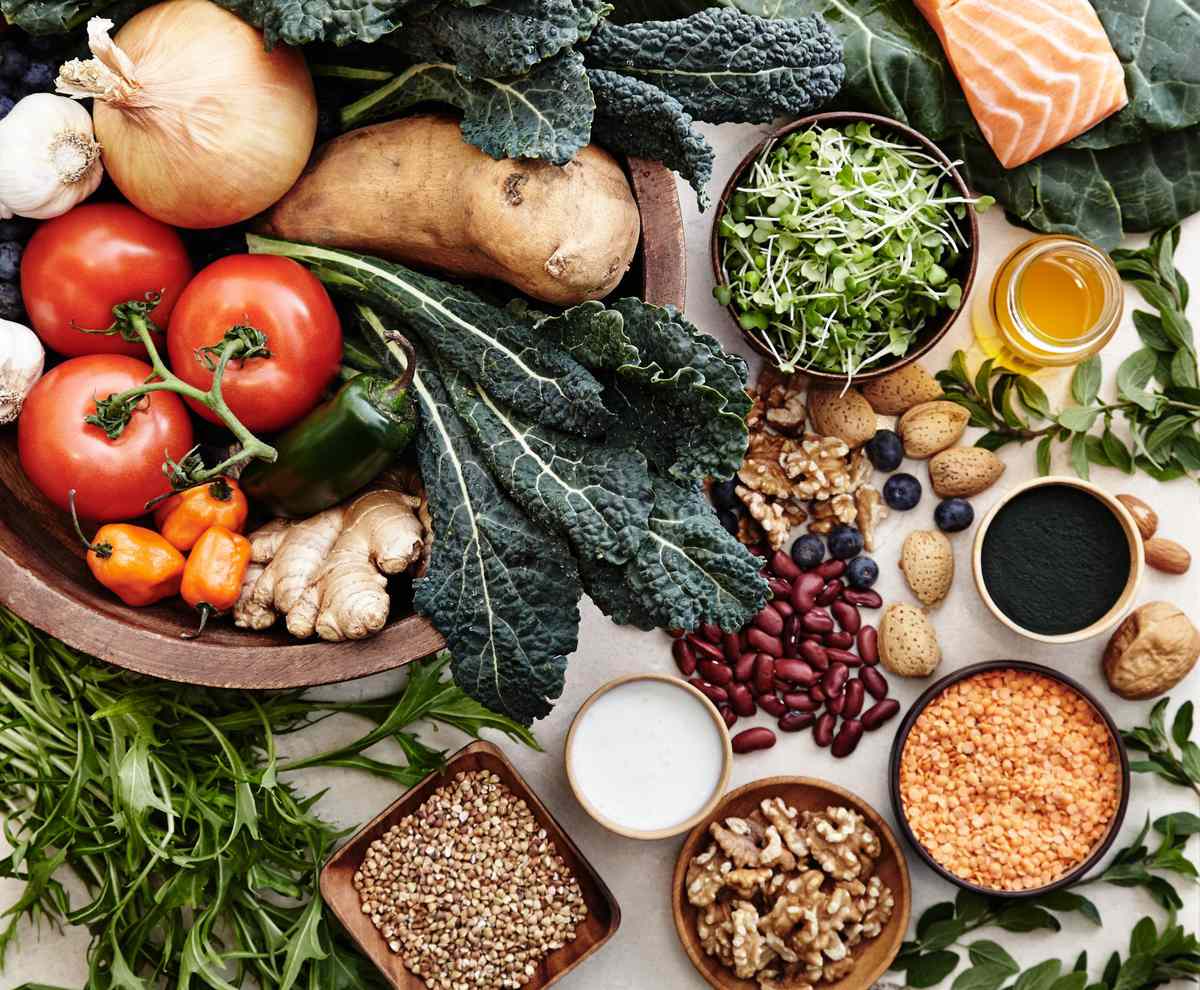If you want to clean up your diet in 2021 without cutting carbs or red wine then the Mediterranean 'diet' may be the move for you. Diet in quotes because well, it's really more of a lifestyle (based on eating tons of veggies and healthy fats) than a restrictive diet — aka every nutritionist's dream.
And that's why, despite plenty of ups and downs in the diet landscape over the last decade, the Mediterranean diet has managed to stick around for the long haul. In fact, it was just ranked the 'best diet of 2021' by U.S. News and World Report for the fourth year in a row. (To be top-rated, a panel of health experts has to find the diet to be safe, relatively easy to follow, nutritious, effective for weight loss, and preventative against diabetes and heart disease.)
Curious to learn more about the benefits of a Mediterranean diet and the foods it includes? Keep reading to find out why this tried-and-true way of eating is here to stay.
VIDEO: 5 Tips to Get Started on the Mediterranean Diet
What is the Mediterranean Diet?
As the name suggests, the Mediterranean diet is a way of eating based on the dietary traditions of countries bordering the Mediterranean Sea, including Crete, Greece, and southern Italy — countries that showed low rates of chronic disease and higher than average adult life expectancy.
This prompted the Harvard School of Public Health to introduce the Mediterranean Diet Pyramid back in 1993 along with the World Health Organization to help familiarize people with common foods of the region.
Since the diets of these countries differ slightly, the Mediterranean diet is more of an eating pattern than a strict diet plan. “The Mediterranean diet is high in vegetables, fruits, whole grains, beans, fish, seafood, olive oil, nuts, and seeds,” says Gillean Barkyoumb, a registered dietitian. “Red meat is rarely eaten and there is little consumption of sugar-sweetened beverages, refined grains, and oils, or highly processed meat.”
Bonus? "Moderate amounts of red wine" are also OK on the Mediterranean diet says Jodi Greebel, a registered dietitian. So, yeah, this just might be the diet of your dreams if the sober curious movement isn't for you.
Benefits of a Mediterranean Diet
The Mediterranean diet has been linked to lower rates of chronic diseases and a longer lifespan (NBD) for a long time, but newer research solidifies its ranking as one of the healthiest diets around. A 2019 study published in the journal Nutrients concluded that the diet can reduce the risk of disease in healthy individuals and can improve “cardiodiabesity,” which includes type 2 diabetes, cardiovascular disease, cancer, and obesity.
Beyond the serious health perks, there's also the fact that this way of eating is actually sustainable. Unlike popular diets like the keto or Paleo diets, or Whole30, you don't have to go all-in on one food group and entirely cut out others. (And FYI, the same U.S. News World Report that ranked the Mediterranean diet at the top of their list placed these other trendy diets at the bottom.)
For those who have failed with other diets, they may just find going the Mediterranean route is what works for them since the style of eating isn't about restriction, but rather “focusing on fresh, simple, whole foods,” Barkyoumb says. And since it includes a wide variety of foods, it's relatively easy to cook at home or to order off of any menu — without getting bored of the same old cauliflower rice.
“The Mediterranean Diet is really the gold standard of balanced eating,” Barkyoumb says. “That’s why it has helped so many people live healthier lives, and still enjoy what they eat.”
Greebel agrees, adding: “It may not sound as sexy or trendy as some other diets, but it is truly one of the best.”
Your Mediterranean Diet Grocery List
Convinced? Barkyoumb recommends steering clear of the aisles and shopping the perimeter of the grocery store, where you'll find fresh, whole ingredients. Here are the foods you'll want to eat (and eat less of) on the Mediterranean diet:
What You Should Eat on the Mediterranean Diet
- Fresh fruit and vegetables
- Lean meats (e.g. chicken and fish)
- Legumes
- Nuts and seeds
- Whole grains (e.g. brown rice, farro, and quinoa)
- Eggs
- Herbs and spices
- Olive oil
What You Should Limit on the Mediterranean Diet
- Sugar
- Dairy (e.g. yogurt, hard cheeses)
- Red meat
- Refined grains(e.g white bread)
- Processed foods and meats
- Refined oils
Source: Read Full Article

